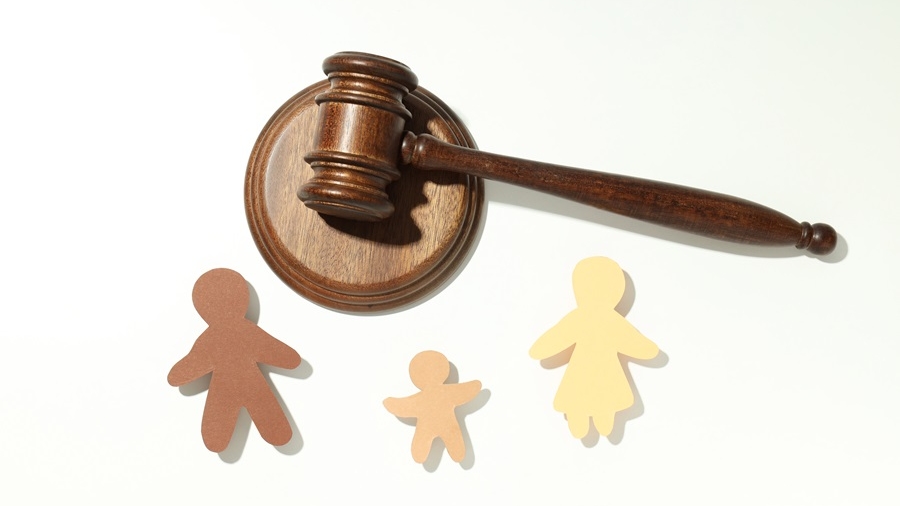Women's Divorce Attorney in Upland, CA
Divorce may be your best option if your marriage is not working, even if ending it cannot be accessible in many ways. The outcome of the situation might significantly affect the remainder of your life. Each of these issues is especially important and can affect your life for many years regardless of whether or in what capacity you maintain child custody, what joint property you keep, or whether you pay or get spousal support. To protect your rights as a woman in a California divorce, you need a compassionate, zealous, and influential women’s divorce attorney in Upland, CA, on your side.
The women’s divorce attorney team at the Law Office of Stephen Gassner has spent decades helping women safeguard themselves, their families, their assets, and their financial futures throughout California divorces. Our trial-ready team is ready to support you at every turn.
The Common Divorce Issues for Women
Mothers' Rights
The legal environment around child custody disputes has changed. It is no longer the custody case that a judge will grant child custody to the mother. California law courts presume that parents share parenting responsibilities and should maintain contact with their children unless proven differently. If you desire a particular child custody arrangement, you must either agree with your partner or persuade the court of your case. You may fight for the best custody arrangement for your kid and your family with the assistance of an ardent mother’s rights attorney at the Law Office of Stephen Gassner.
You are entitled to child support payments from the other parent if you are granted primary custody or have custody of the kid. The non-custodial parent owes child support and belongs to the kid, not the parent. Discuss your child’s legal rights and what to do if your husband or co-parent contests them or fails to uphold their commitments with a qualified child custody and alimony lawyer.

Property Division
State community property laws apply in Upland, California. That means that both parents are equally entitled to all property gained by either partner throughout the marriage. Real estate, retirement benefits, stocks, and company ownership interests are all considered property forms that must be divided after a divorce. The parties or the court may determine that they equally divide the marital property. The parties may need to split each asset more precisely in half.
Our property division attorney can assist you if you wish to safeguard distinct assets (i.e., assets accumulated before marriage). We will advocate and fight to protect your legal right to any specific marital assets you desire to retain. We will investigate your finances to ensure they are not holding marital property throughout the divorce or even when calculating spousal support. At the Law Office of Stephen Gassner, our all-inclusive women’s divorce service guarantees you the best representation available in court and on the negotiating panel.
Spousal Support
Your money may undergo disruption if you get a divorce. It is vital to make plans for the future, which may include paying or receiving alimony (also known as spousal support). In California, spousal support is granted temporarily while the divorce is ongoing and permanently or long-term once the divorce is finalized. The amount of long-term alimony awarded would depend on factors like the spouse’s earning potential, financial situation, and the length of the marriage. Stephen Gassner is available to help you if you want to reduce the amount of alimony you must pay.
Frequently Asked Questions
What Are the Legal Grounds for Getting a Divorce in Upland, California?
Because California is a “no-fault” divorce state, the spouse or Registered Domestic Partner who files for divorce first does not have to show that the non-filing spouse or domestic partner intentionally causes them damage or negatively affects their quality of life. In California, just one of the spouses or domestic partners must claim that the pair can no longer get along to obtain a no-fault divorce. It is referred to legally as having “irreconcilable differences.”
The spouse who files for divorce first may dissolve the marriage of their own free will. Furthermore, even if the domestic partner or non-filing spouse does not desire a divorce, they cannot halt the procedure by simply declining to take part in the case. In this case, they can still get a default verdict, and the divorce will be granted.
How Long Does It Take to Get a Divorce in California?
In all divorce cases, California mandates a six-month jurisdictional period. As a result, you can only get a legally binding divorce if six months have passed since the respondent was served with the Petition for Dissolution. But many cases are resolved before the six-month mark. You can have a divorce judgment recorded that specifies a date in the future for the marriage to end if your case is settled before the six-month mark. When the agreement is signed, all the provisions of your settlement—including those about property division, debt distribution, child support, spousal support, child custody, and visitation—will come into force. Your marital status will not become “single” until the day the verdict is handed down.
How Is Alimony Determined in a California Divorce?
Alimony is decided case-by-case according to each state’s established rules. Most jurisdictions consider the couples’ current earning capacity and potential for future growth. Any court’s determination of alimony will be strongly influenced by the extent to which one spouse was reliant on the other spouse during the marriage.

Compassionate Women's Divorce Attorney for Your California Divorce
You need an experienced, sympathetic attorney if you are a California woman facing divorce. Our Upland women’s divorce lawyer team at the Law Office of Stephen Gassner is ready to defend your custody rights, battle for marital assets, and safeguard your interests in child support and custody disputes. Until we get the outcomes you deserve, our skilled family law attorney team is ready to remain by your side. Contact the Law Office of Stephen Gassner, the trusted women’s divorce attorney in Upland, CA.
Law Office of Stephen Gassner
324 N Mountain Ave, Upland, CA 91786, United States
(909) 937-7000

Mr. Gassner is a Certified Family Law Specialist, certified by the California State Bar Board of Legal Specialization. He is also a member of the Association of Certified Family Law Specialists and a member of the California Lawyers Association Family Law Section.











